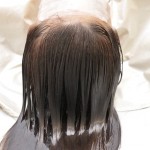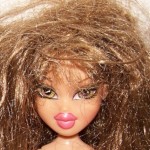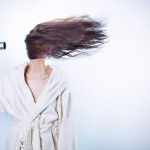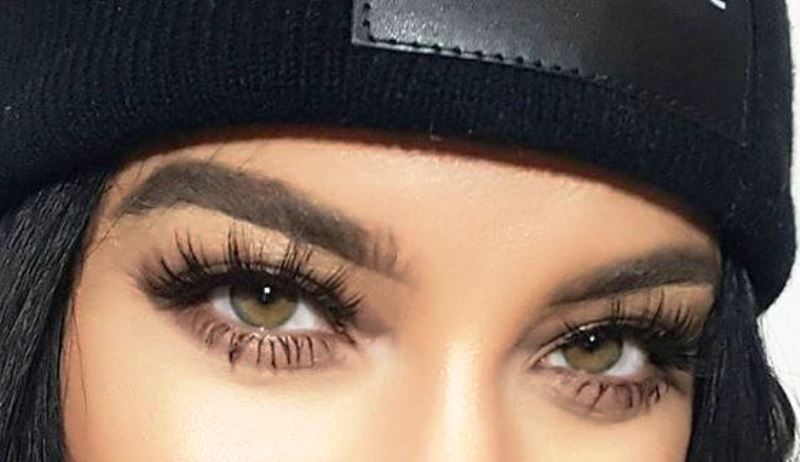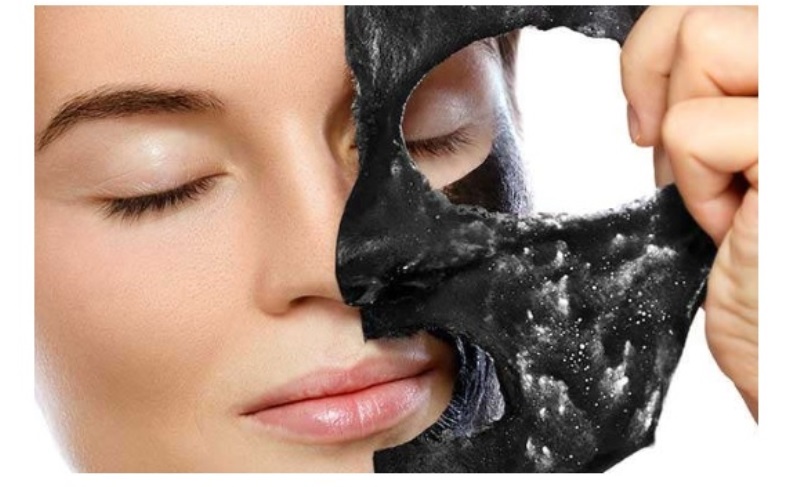In a day and age where people are constantly subjecting their hair to treatments and dye jobs and perms and styling techniques it is difficult to find a head of hair which isn’t damaged in some way or the other. Add to that the affects of pollution, bad water, chemical-laden products and a horde of other natural conditions, and you have an insane number of hair problems which have to be handled in order to prevent hair from suffering from dire (and permanent) consequences. This article is going to talk about all the amazing hair care tips that you need to follow, in order to protect your hair from further damage, and emerge with healthy tresses.
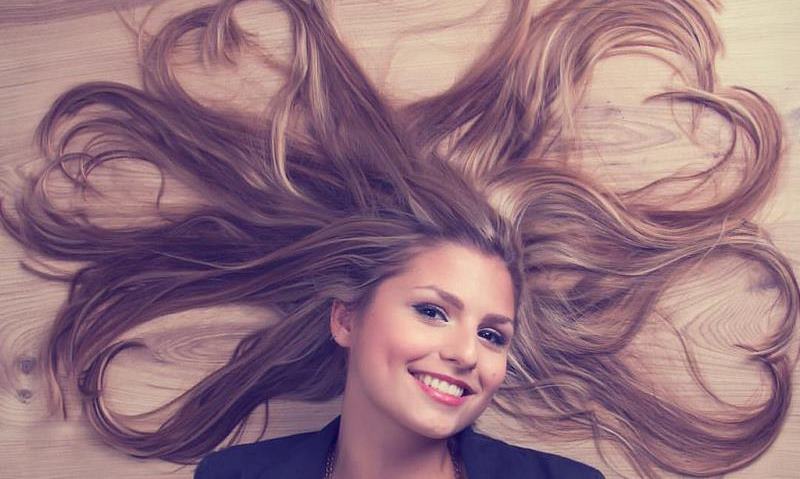
Image source: Google, copyright-free image, under Creative Commons License
Believe it or not, taking care of your hair isn’t too difficult at all. A couple of changes to your lifestyle, a few precautionary measures and a simple routine here and there specifically designed for the protection of your hair is more than enough if you want to rejuvenate limp and dull hair, and protect it from damage.
Suggested read: Everything You Need To Know About The Best Essential Oils For Hair Growth
It is important that despite your busy lives, you take time out to take care of your hair, because otherwise you will have to watch it all fall or cut it off, or spend an insane amount of money trying to recover from the damage that has occurred to your hair. Here is everything you need to know about the most effective healthy hair care tips, which are basic, simple and highly effective.
TYPES OF HAIR
Before we can go into the things that you can do to take care of your hair, it is important to understand that hair has different types. The same treatment doesn’t work for all, because the texture of hair is different, and it reacts differently. When you are about to treat your hair for damage and other problems, the first step is to identify what your hair type is. Here are the broad categories into which you can divide your hair:
- Dry
- Oily
- Frizzy
- Thick
- Thin
These are the different kinds of hair based on the nature of your tresses. Another way in which hair can be classified is based on texture, that is, straight, wavy or curly. However, straight hair can be dry, oily, frizzy, thick, thin, etc. and it is the same for wavy and curly hair, so we are now going to explore what one can do to take care of each of the above kinds of hair, at the most fundamental level.
1. Dry Hair
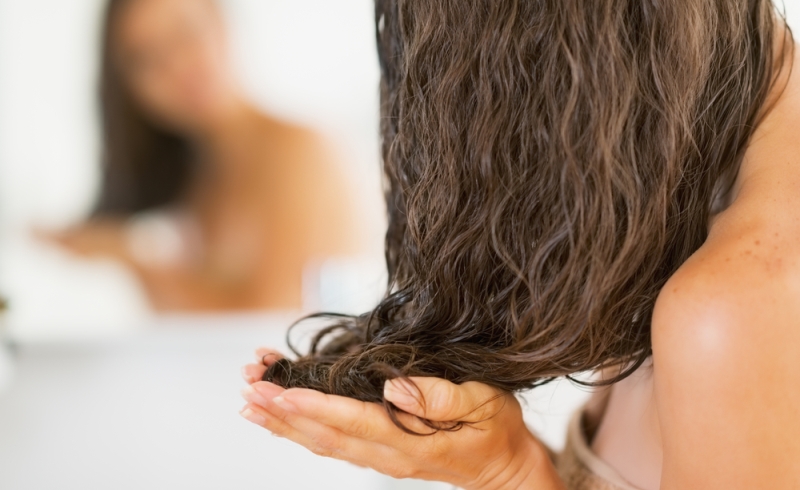
Image source: Shutterstock
The scalp produces a ton of natural oils which nourish the roots of your hair, and the skin on your head, and maintains the general health of the area. However, sometimes, it so happens that the scalp produces less oils, which dries out the roots of your hair, leaving it susceptible to damage and breakage. This can lead to a horde of problems such as hair fall, split ends, dandruff, etc. Here are some basic dry hair care tips that you can follow at home, without much effort, but with invaluable results.
- Don’t wash your hair too often. Washing your hair too frequently can strip your scalp of the essential oils that it produces, making it even drier and flaky. The ideal rate of washing and shampooing your hair is once every two to three days.
- Wash your hair with cold water. An essential way to help your scalp and hair retain moisture is by washing your hair in cold water. When you wash your hair with warm or hot water, the roots of your hair swell up and allows water and oils to escape, making your hair dry and dull.
- Pick the right shampoo. This is essential if you want your hair to not dry out too often. Pick shampoos which have a hydrating and moisturizing formula, and contain natural oils which can nourish and hydrate your hair.
- Keep your hair covered. Fast winds, pollution, chemicals, etc. which are all found in the air can dry out your hair. Try to keep your hair tied or covered when you are in harsh weather conditions, to protect your hair as much as possible.
There are a few naturally occurring products which you can apply to your hair for extra nourishment. All of these have moisturizing properties which can help hydrate dry hair. These include:
- Eggs
- Avocado
- Mayonnaise
- Omega-3 fatty acids
- Olive oil
- Coconut oil
2. Oily Hair
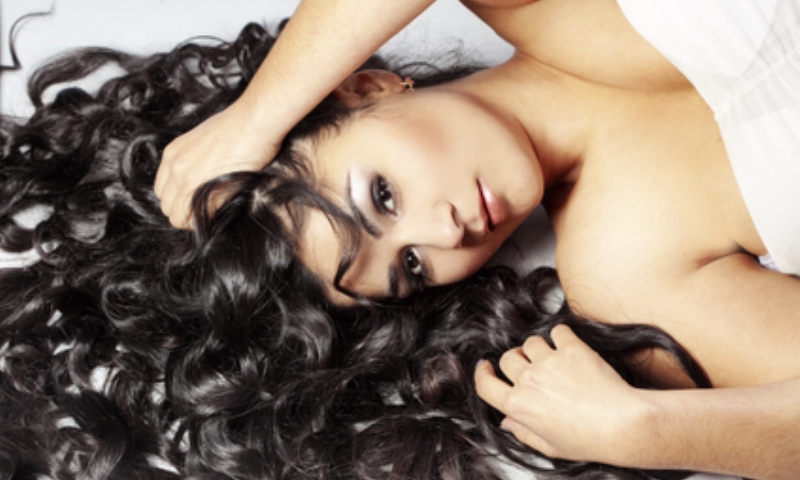
Image source: Google, copyright-free image, uncer Creative Commons License
If you have oily hair, then it is because the sebum glands in your scalp produce extra amounts of oil. While oil secretion is essential for healthy hair, too much of it can block your pores and cause problems like dandruff, sticky hair, greasiness, etc. Extra oil can be produced either because of environmental conditions, or even because of hormonal fluctuations and genetics. Here are some ways in which you can care for oily hair, without stripping your scalp of essential oils.
- Take your time to shampoo. When you are washing your hair with soap, don’t rinse the soap immediately from your scalp. Let the soap soak in your hair for a while, so that all the excess oils are absorbed. Ideally, you should do this in the morning, so that your hair is fresh and bouncy all day. However, do not over wash as that can dry out your hair.
- Use conditioners on hair ends. Most products which smoothen out hair, or detangle it, are oil-based which can make your hair look even greasier. When you are washing your hair, make sure you apply these products at the ends, rather than at the roots, so that the dry parts are smoothened, while the scalp doesn’t become overtly oily.
- Wash your hair with cold water. Heat and hot water can stimulate the glands in your head to produce even more oil, so you should wash your hair with cold water. Even though it is best to let your hair dry naturally, if you have to use blow driers, make sure that the air is cool and not hot.
- Use dry shampoo. If you have extra oily and slick hair, and you have time to wash your hair, then you can make use of dry shampoo on your scalp which soaks up the excess oil and takes away most of the greasiness. Avoid touching your hair too much, as the oils from your hands can transfer to your scalp and make your hair look oily.
You can also apply some natural products to your hair or consume as part of your diet, to prevent hair from getting too oily. These include:
- Mouthwash
- Witch hazel
- Tea tree oil
- Apple cider vinegar
- Egg yolk masks
3. Frizzy Hair
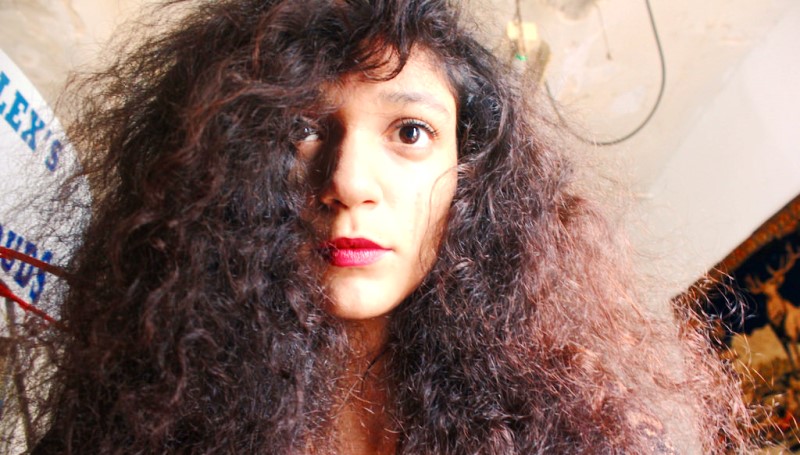
Image source: Pixabay, under Creative Commons License
Frizzy hair is caused when your hair lacks moisture. However, it is different from dry hair because in this case, the cuticles of your hair is raised, which causes the buildup of excess water content and oil in the follicles, which makes your hair swell up and appear unmanageable. Frizzy hair is usually caused due to the excess use of cosmetic products and styling treatments to your hair, such as coloring, ironing, smoothening, blow-drying, etc. Over washing your hair and mishandling it when you are drying or tying it can also cause excessive frizz. Here are some hair care tips to manage frizzy hair.
Suggested read: Vital Tips For Effective Hair Damage Treatment At Home
- Choose your shampoo with care. There are a number of shampoos out there which are made specifically for frizzy hair. Choose the ones which have the most amount of natural products and ingredients.
- Use styling creams. Immediately after you wash your hair, make sure that you apply hydrating creams or styling creams to your hair, because hair tends to get especially frizzy after you have washed it and it is drying. This will allow your hair to set while it is drying.
- Do not towel-dry your hair. Towel-drying your hair creates static between your hair and the towel, which makes your mane puff up even more. You can use a diffuser to dry your hair, or go for cool-wind blow drying.
- Use serum and condition on your hair-ends. People with frizzy hair often have dry and light hair ends, which can be one of the reasons why your hair is so big and unmanageable all the time. Apply serum and conditioner at the ends of your hair, so that it is smooth and weighed down.
You can even apply a few natural products to your hair to make it manageable and frizz-free. This includes:
- Carbonated water
- Avocado
- Olive oil
- Apple cider vinegar
- Coconut oil
- Raw eggs
4. Thick Hair
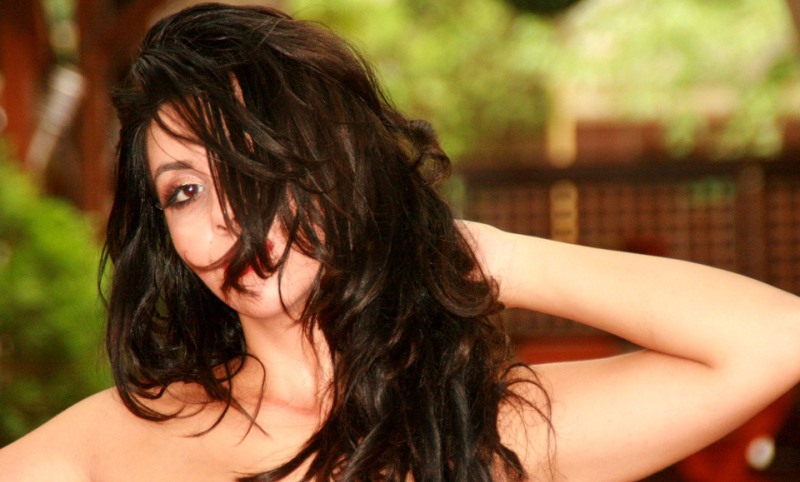
Image source: Pixabay, under Creative Commons License
People who don’t have thick hair would literally do anything to get thick hair. However, those who have thick hair know that it can be a blessing as well as a curse because of how difficult thick hair is to manage. The thing about thick hair is that you have to spend a considerable amount of time taking care of it, so that it doesn’t start falling out, or thinning out. Here are some healthy hair care tips for thick hair.
- Choose heavy-duty hair equipment. Whether you are buying a hair brush or a comb or a blow dryer, make sure that you buy hardy ones, which have the ability to withstand your hair, and handle it without damaging it. Choose wide-toothed combs, strong brushes and heavy duty dryers for your hair.
- Use clarifying shampoo. Using the right products when you have thick hair is absolutely essential. Steer clear of voluminizing shampoos, which can make your hair impenetrable. Make sure that you use a softening mousse after you shampoo, because there is nothing worse than dry, thick hair.
- Keep your hair tied. Leaving thick hair open can lead to thinning hair and long-term damage to your hair, because it becomes tangled and unmanageable.
- Wash your hair in parts. Whether you are washing your hair, or combing it or styling it, make sure that you do it in parts. Do not try to tackle it all at the same time, as you could either damage your hair, or get an uneven treatment, or leave product in your hair which is meant to be washed out.
5. Thin Hair
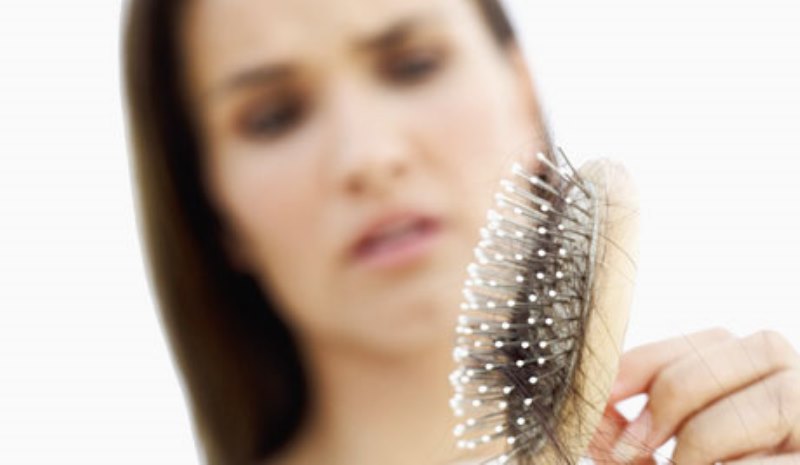
Image source: Google, copyright-free image, under Creative Commons License
Thin, fine hair is a real struggle. It usually leaves your hair looking limp and weak. Thin hair is as susceptible to breakage as thick and frizzy hair which is why thin hair also needs to be cared for. People usually develop thin hair if they don’t take care of their hair, or because of excessive hair fall or even because of genetic factors. However, there are a few things that you can do to take care of thin hair.
- Don’t brush your hair too often. People with thin hair often try to increase volume by creating static, which only causes more breakage. You should comb your hair to keep it tangle free, but don’t constantly brush it, as it could lead to more thinning and breakage.
- Choose light conditioners. When buying conditioners for thin hair, make sure you buy lightweight formulas, as heavy, moisturizing formulas can weigh your hair down and make it look even more limp. More so, add the conditioner to the tips of your hair, rather than the roots.
- Don’t comb your wet hair. Wet hair is more prone to breaking. Towel dry your hair, or at least wait till it is dry enough to be combed without yanking your brush through your hair. This could damage your hair further.
DO’S AND DON’T FOR HEALTHY HAIR
When it comes to healthy hair tips, there are some do’s and don’ts that you can follow, to ensure that your hair gets the treatment that it deserves.
Do’s
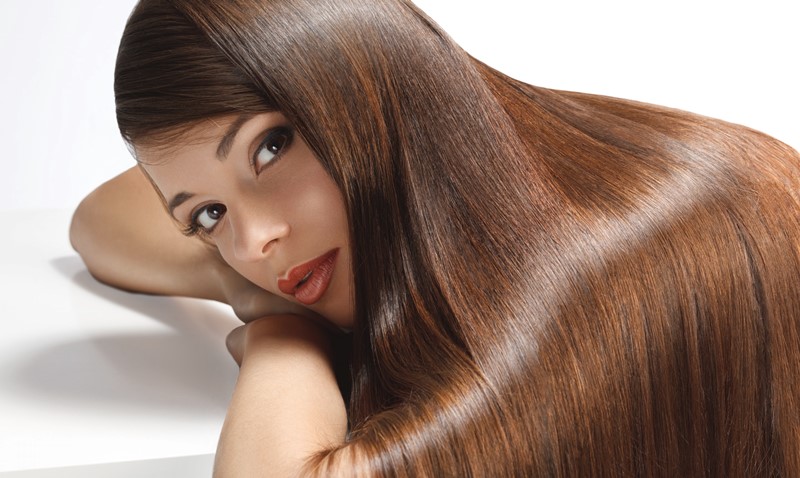
Image source: Google, copyright-free image, under Creative Commons License
- Do wash your hair often. Scum and dirt and dead skin cells on your scalp can prevent your hair from growing at a normal rate, create hormonal imbalances and lead to problems like dandruff and hair fall.
- Do make use of oils and serums to keep your hair healthy and shiny. Oils strengthen your hair and serums keep them smooth and tangle-free, both of which facilitate you having healthy hair.
- Do take care of your diet. What you eat forms a major part of how healthy your hair is, which is why you need to ensure that you have the right amounts of Vitamins and minerals in your diet, as well as food items which are especially good for your hair.
Suggested read: If You’ll Read One Article On Hair Brushes, Then Read This One
Don’ts
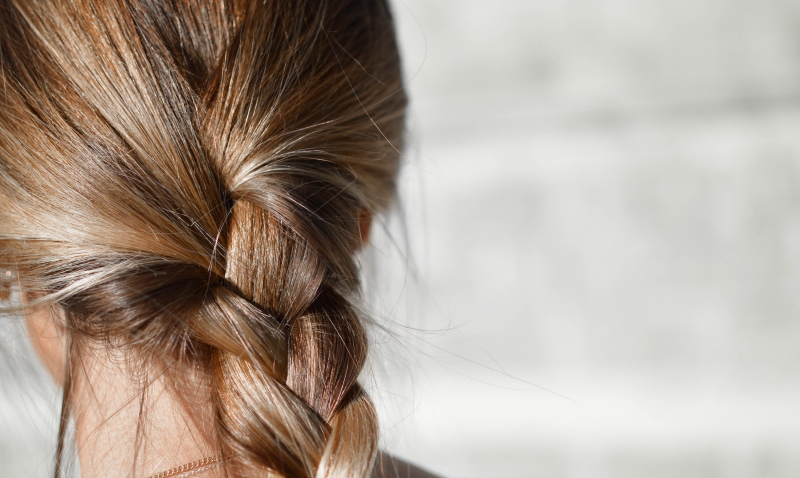
Image source: Google, copyright-free image, under Creative Commons License
- While it is important to wash your hair often, do not wash your hair everyday as it could strip it off natural oils and moisture, which in turn causes serious problems.
- Don’t subject your hair to too many artificial treatment methods, whether it is straightening, perming, curling or dying. All the chemicals and extreme temperatures affect the basic composition of your hair and causes internal breakdown and damage.
- Do not forget to take time out for your hair every day. Hurrying with your hair, yanking, tying it too tightly, not taking care of it, all of it adds up to long-term damage which is very difficult and very expensive to resolve. It is better to be safe than sorry when it comes to your hair, so make sure you take your time when handling it.
These were some of the preliminary healthy hair care tips that you can follow for tangle-free tresses that grow at a normal rate. Let us know what your hair care secrets are, in the comments section below!
Featured image source: Google, copyright-free image, under Creative Commons License



